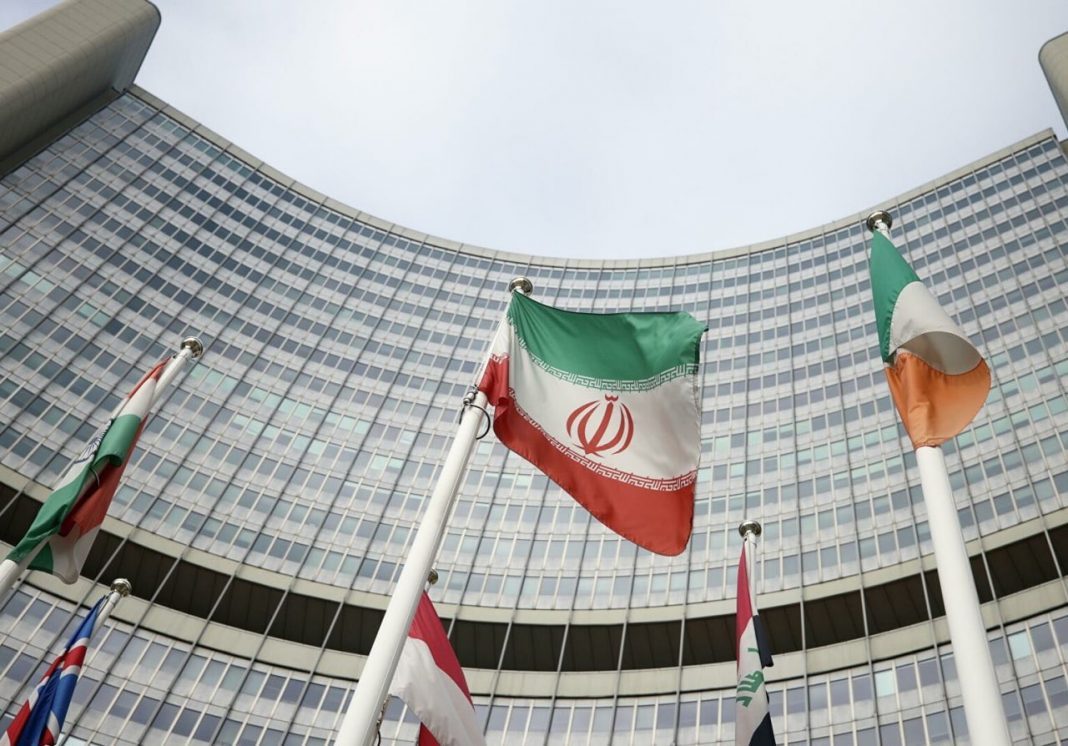Gulf countries expressed their readiness to “seriously and effectively” deal with the Iranian nuclear case.
Three European powers on Tuesday warned of “rapidly reaching the end of the road” in the ongoing scramble to revive the Iran nuclear accord, citing Tehran’s nuclear advances.
“Iran’s continued nuclear escalation means that we are rapidly reaching the end of the road,” said France’s ambassador to the UN Nicolas de Riviere, as quoted by Reuters.
The French official was reading a joint statement from the UK, France and Germany, in which the western powers said Iran’s actions risked “completely hollowing out” the Joint Comprehensive Plan of Action [JCPOA].
“Iran has also curtailed monitoring by the International Atomic Energy Agency [IAEA], leaving the international community with less knowledge of the status of the Iranian nuclear programme. Iran’s nuclear programme has never been more advanced than it is today,” added the statement.
GCC summit calls for action from Iran as Vienna talks continue
Meanwhile, Iran’s top nuclear negotiator Ali Bagheri Kani accused western powers of partaking in a “blame game” rather than engaging in “real diplomacy”.
“Some actors persist in their blame game habit, instead of real diplomacy. We proposed our ideas early and worked constructively and flexibly to narrow gaps,” tweeted Bagheri Kani.
The Iranian official added that “diplomacy is a two way street” and a good deal can be reached if there is “real will to remedy the culprit’s wrongdoing”.
Speaking to Doha News, Dr. Mehran Kamrava, Professor of Government at Georgetown University in Qatar, said that the statements made by the European side do not indicate that they are negotiating “in good faith”.
“It doesn’t seem like the Europeans are negotiating in good faith…the conduct of the Europeans doing the negotiations seems to be vindicating everything that Iranian hardliners have been saying, that these guys cannot be trusted,” said Dr. Kamrava
The seventh round of talks in Vienna kicked off on 29 November, attended by negotiators from the p4+1 – China, France, Russia, the UK plus Germany.
The indirect US-Iran talks initially started in the Austrian capital in April this year to revive the 2015 nuclear accord, but adjourned following the sixth round in June. They were put on hold as Iran’s elections took place, which saw the victory of Ebrahim Raisi.
In 2018, former US President Donald Trump withdrew Washington from the JCPOA and imposed crippling sanctions on Iran in bid to apply “maximum pressure” on the country.
Despite unilaterally withdrawing from an accord that took years to reach, the US accused of Tehran of not abiding by its commitments under the JCPOA.
Wile the Iranian side has been demanding the lifting of sanctions, the Joe Biden administration continued to impose additional punitive measures.
“Now that they started talking, they [Europeans] are saying ‘we need to wrap up the discussions quickly’ and this is not negotiating in good faith. And the irony is, as the talks are going on, the Biden administration has been imposing additional sanctions,” added Dr. Kamrava.
There have been international concerns over Iran’s nuclear programme, especially after it had enriched uranium at 60% purity in response to a series of attacks which Tehran has blamed on Israel.
The US threatened Iran with “other options” if it continues its nuclear activities as other western nations threatened to apply more pressure on Tehran, raising questions over the collapse of the deal.
“Whether or not negotiations are on the verge of collapse, I don’t know. It doesn’t seem like the Europeans and the Americans are negotiating in good faith. So the question is: how much of these threats are the Iranians willing to take before they walk away?” said Dr. Kamrava.
Meanwhile, the GCC condemned Iran’s nuclear advances, including uranium enrichment, during the bloc’s 42nd summit on Tuesday. The council described Iran’s move as a “failure to adhere to its international commitments”.
According to Qatar News Agency [QNA], GCC countries stressed the need to participate in any negotiations with Iran including all regional and international discussions related to the nuclear file, given its relevance to the region’s security, safety and stability.
“The GCC states have always wanted to have a seat at the negotiating table….and the Iranians have steadfastly refused. So these negotiations are at such a tentative state and are simply hanging on by a thread that introducing additional elements or demands does nothing to move them forward,” said Dr. Kamrava
Follow Doha News on Twitter, Instagram, Facebook and Youtube







